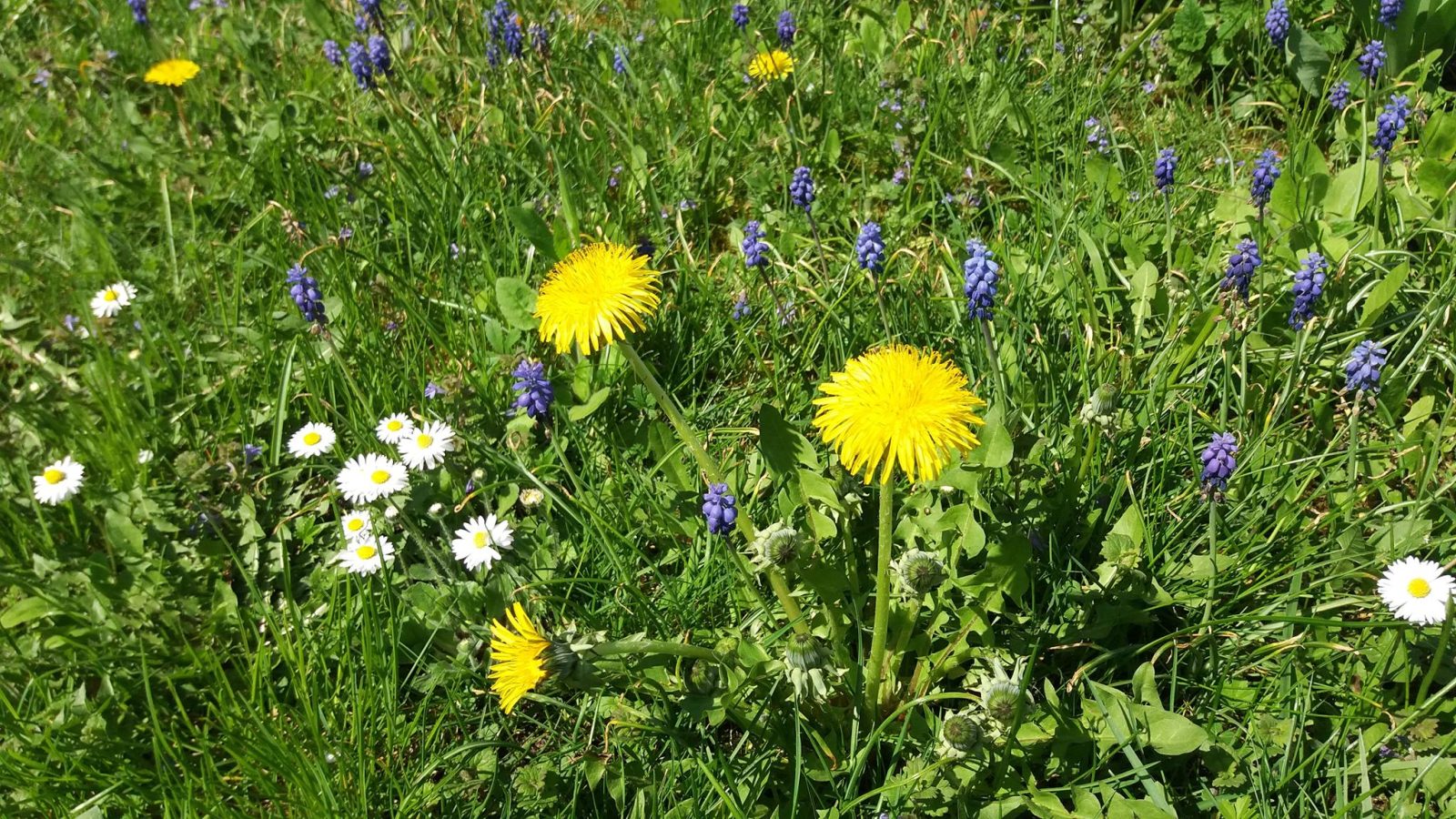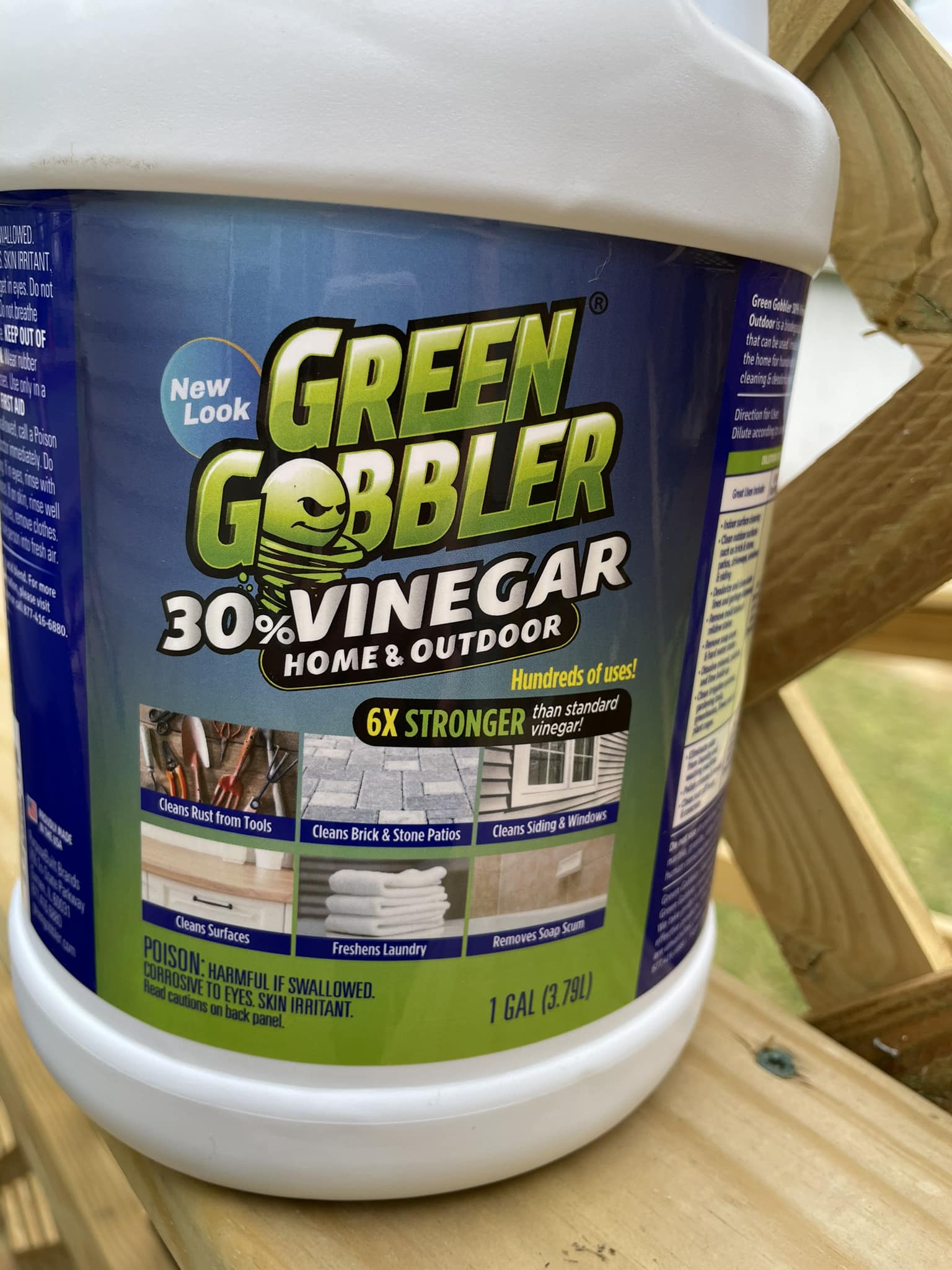Gardeners understand the importance of killing grass and weeds as it helps keep your garden clean and safe. You may also want to remove your lawn grass and start all over. However, achieving that is easier said than done, considering the tolerance of weeds.
You are better off killing off your grass if 50% or higher of your lawn is weeds and bare ground. Remember killing the whole yard eliminates everything, including broadleaf and grassy weeds. You must remove the entire vegetation, including the roots, to achieve your goal.
Well, how do you permanently kill weeds and grass? Keep reading to find out.
How To Permanently Kill Weeds And Grass With Homemade Weed Killer
You can easily kill grass and weeds permanently with a homemade weed killer of vinegar, salt, and soap.
While vinegar is an effective solution against weeds, it is not permanent- the weeds grow back eventually.
This is because while vinegar’s acetic acid burns the stalks and leaves, the soil neutralizes the vinegar, so it will not reach the roots.
Adding salt and dishwashing liquid makes the vinegar-based homemade recipe effective in killing grass and weeds permanently.
Dishwashing liquid breaks the vinegar’s surface tension allowing it to stick to the plant, thus facilitating better absorption.
Also Read:
On the other hand, salt dehydrates the grass and weeds, making them wither and die. You can use uniodized or iodized generic salt in the recipe.
Regarding vinegar, white vinegar that has 5% acid works great and is cheap. You can also choose horticultural vinegar with up to 30% acid for quicker results.
What Is the Ratio For Homemade Weed Killer?
To make the best homemade weed killer, you will need the following:
- A quarter cup of dishwashing soap.
- A quart of cleaning vinegar.
- 2 cups of salt.
Directions
- In a wok or pan, heat the vinegar, but make sure it does not boil.
- Add salt into the vinegar and whisk it to dissolve it entirely.
- Allow the mixture to cool to a temperature you can comfortably hold but ensure it remains warm enough.
- Put dishwashing liquid into a spray bottle, then add the vinegar mixture.
- Shake well to mix.
How To Use Homemade Roundup
A dry, hot day is the best time to kill the grass and weeds in your lawn using a homemade roundup. Spray weeds and grass with the vinegar, salt, and dishwashing soap homemade weed killer and wait for the vegetation to die.
How Homemade Weed Killer Works
Homemade weed killer works depending on the ingredients in the recipe. A vinegar, salt, and soap recipe permanently kill the grass and weeds by utilizing the properties in the recipe.
The salt and vinegar dry the plants and keep them from distributing the much-needed moisture, killing them through dehydration.
Consider using horticultural vinegar or cider vinegar because they have higher acetic acid concentrations; therefore, they deliver better results than white vinegar.
The dishwashing soap in the recipe helps break the vinegar’s surface tension, ensuring the vinegar sticks to the plants.
Avoid applying the homemade weed killer on a rainy or cool day because it will be less effective or ineffective entirely.
Do You Have To Pull Weeds After Roundup?
Do not leave dried weeds on your lawn, so pull them with your hand after applying Roundup. While the activity is time-consuming and tasking, it is definitely easier than pulling live grass and weeds.
Pulling out the plants ensures you get out the roots the chemicals did not kill.
Protect your hands from injuries when uprooting dead grass and weeds by putting on gardening gloves.
How Do You Stop Weeds From Growing Back?
We all dream of a lawn and gardens free of weeds, but these unwanted plants are challenging to keep them from growing back.
Nonetheless, you can achieve the desired results by killing weeds using methods that permanently eliminate them, like the methods discussed in this post.
Moreover, practical weed control strategies come in handy. These include:
- Pulling the weeds when the soil is moist (such as after watering or rainfall) makes it easy to remove every part of the unwanted plant, including the whole roots.
- Smother the weeds through mulching.
- Remove the weeds before they produce weeds to prevent them from germinating and spreading.
- Space your grass correctly. They should grow close together, leaving no gaps for the weeds to grow.
- Apply pre-emergent after weeding.
Other Ways to Kill Grass and Weeds Permanently
You can employ chemical-based or natural methods to kill weeds and grass permanently. Let’s look at these practical methods.
1. Herbicides
Herbicides such as Roundup effectively eliminate weeds and grass permanently; just spray the vegetation leaves with the chemical and leave it to act.
The chemical travels through the leaves to the rest of the plant, attacking the plant from its roots. The effects last up to a year.
Roundup functions like salt, except it does not damage healthy vegetation close to the grass and weeds via water runoff.
For optimum results, spray the Roundup on a dry, hot, and calm day and ensure you saturate the plant with the chemical.
You’ll see the outcome within a couple of hours. Once the grass and weeds die, pull them out.
2. Starvation
Plants need water, air, and sunlight to grow, so depriving the grass and weeds of these essential requirements will kill them.
Cover the area with plywood, black paper, cardboard, and newspaper, and wait for the vegetation to die. The problem is this the plants will take about 2 to 3 months to die but leaves weed-free, rich soil.
Moisten your lawn before covering it, and cut the grass and weeds to make compost.
3. Digging Out the Grass and Weeds
This is another method that doesn’t involve chemical use. Use a spade or hoe to remove the grass and weeds, making sure you drive the tool down into the roots and once you remove the plants, discard them to keep them from growing back. In addition, protect your hands by wearing gloves.
4. Solarization
The procedure entails trapping the energy of the sun and heating the soil by covering the area you want to kill the vegetation using a plastic tarp.
It is best done using a transparent tarp made of polyethylene instead of black or white plastic.
Before covering the area, remove debris and plants, then water the lawn until it’s saturated. Pick the hottest times of the year to do solarization and leave the yard covered for about a month. You can weigh down the lawn edges to guarantee every part is covered.
5. Salt
Applying salt to your lawn is another way of permanently killing grass and weeds. However, beware that this method comes with some shortcomings that could do more harm to your yard.
While it is effective in getting rid of unwanted plants, it does not discriminate, so the vegetation you wish to keep may be in harm’s way.
In addition, it renders the soil barren making it difficult to grow new plants. You may view salt as a great method since you, after all, want to kill grass and weeds, but water easily carries salt.
Therefore, future rainfall and watering can take salt to other yard areas, even if you only apply it to a tiny space, resulting in massive patches of garden plants and dead grass.
Frequently Asked Questions
Does Baking Soda Kill Weeds Permanently?
Baking soda does not kill weeds permanently, but you can use it as a short-term solution since it does not kill the roots.
Baking soda dries out the blades and leaves of the plants like vinegar. You can also use baking soda to protect your grass from pet urine by pouring a solution on their urine spots.
Does Bleach Kill Weeds Permanently?
Bleach does not offer a permanent solution against weeds but can momentarily damage hardy weeds like nutsedge and dandelions.
Bleach dries out grass and weeds it comes into direct contact with, just like baking soda and vinegar.
Bleach only kills the plant parts above the ground, so it does not affect the roots; that’s why it is not a permanent solution.
Does Salt Kill Weeds Permanently
Salt kills weeds permanently because it gets into the roots, but the downside is it also destroys the soil, making it unproductive for years or months.
In addition, water runoff transfers the salt to grounds you do not want, killing your plants. If you decide to kill grass and weeds in your lawn using salt, you may not be able to plant grass in your yard for a while.
Does Boiling Water Kill Weeds Permanently?
Boiling water does not permanently kill weeds. While boiling water will damage the plant’s stalks and leaves, the roots will remain intact.
However, weed seedlings with shallow roots can be killed by boiling water. It will not work on mature weeds if you want a permanent solution against unwanted plants, but it will temporarily injure them.
Final Remarks
When choosing the method to permanently kill the grass and weeds, consider the lawn size. You must also decide whether to use chemicals or natural methods, keeping in mind that herbicides can harm the environment.

Hey there, I’m Derek Schew, a writer for Lawnholic.com, where we cover everything and anything related to lawns. As someone who’s spent countless hours tending to my own lawn, I’m passionate about sharing my knowledge and helping others achieve the perfect yard. From lawn care tips to product reviews, I’m committed to providing our readers with the most accurate and up-to-date information available. So whether you’re a seasoned lawn enthusiast or just getting started, I invite you to join our community and discover the joys of a lush, green lawn.


